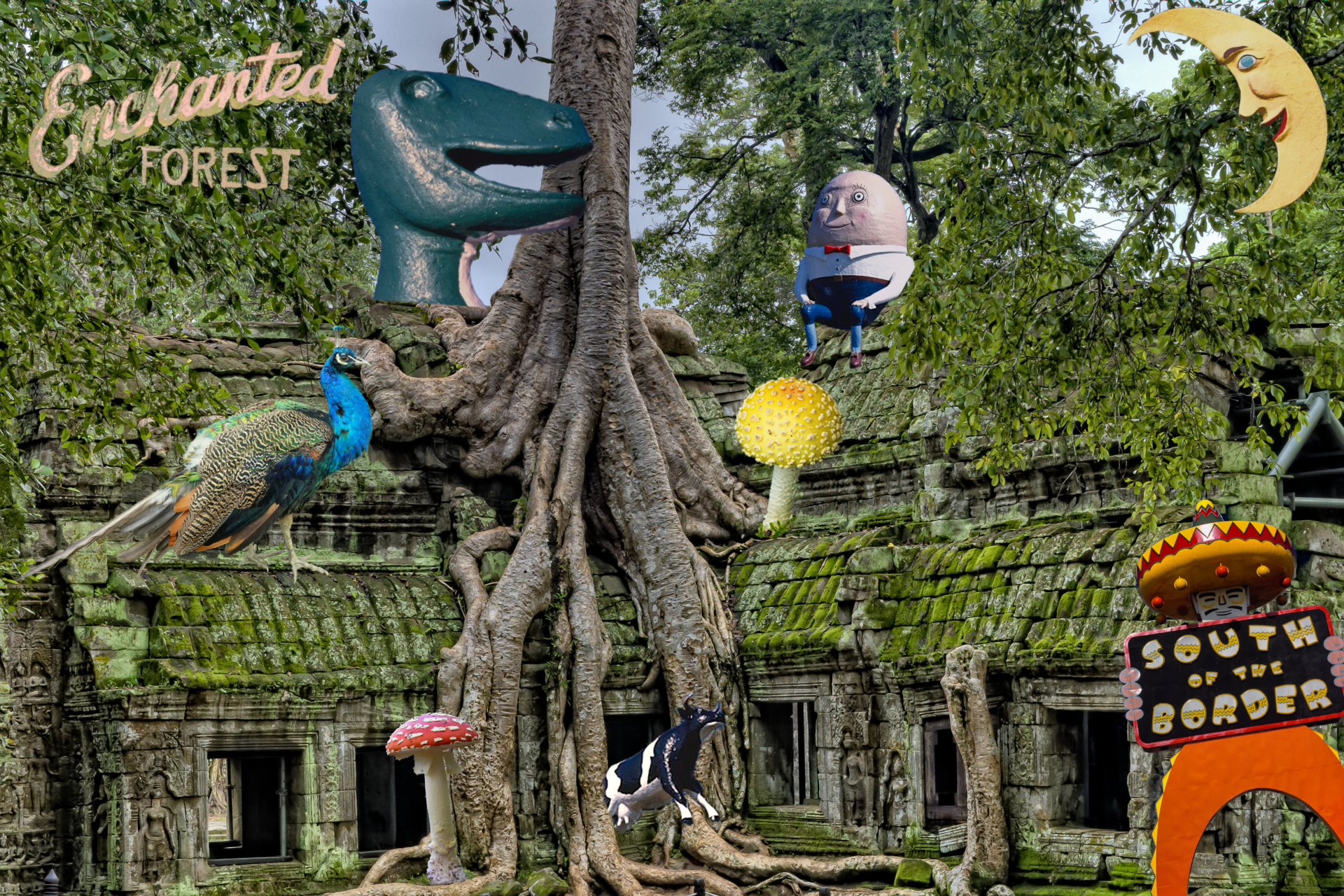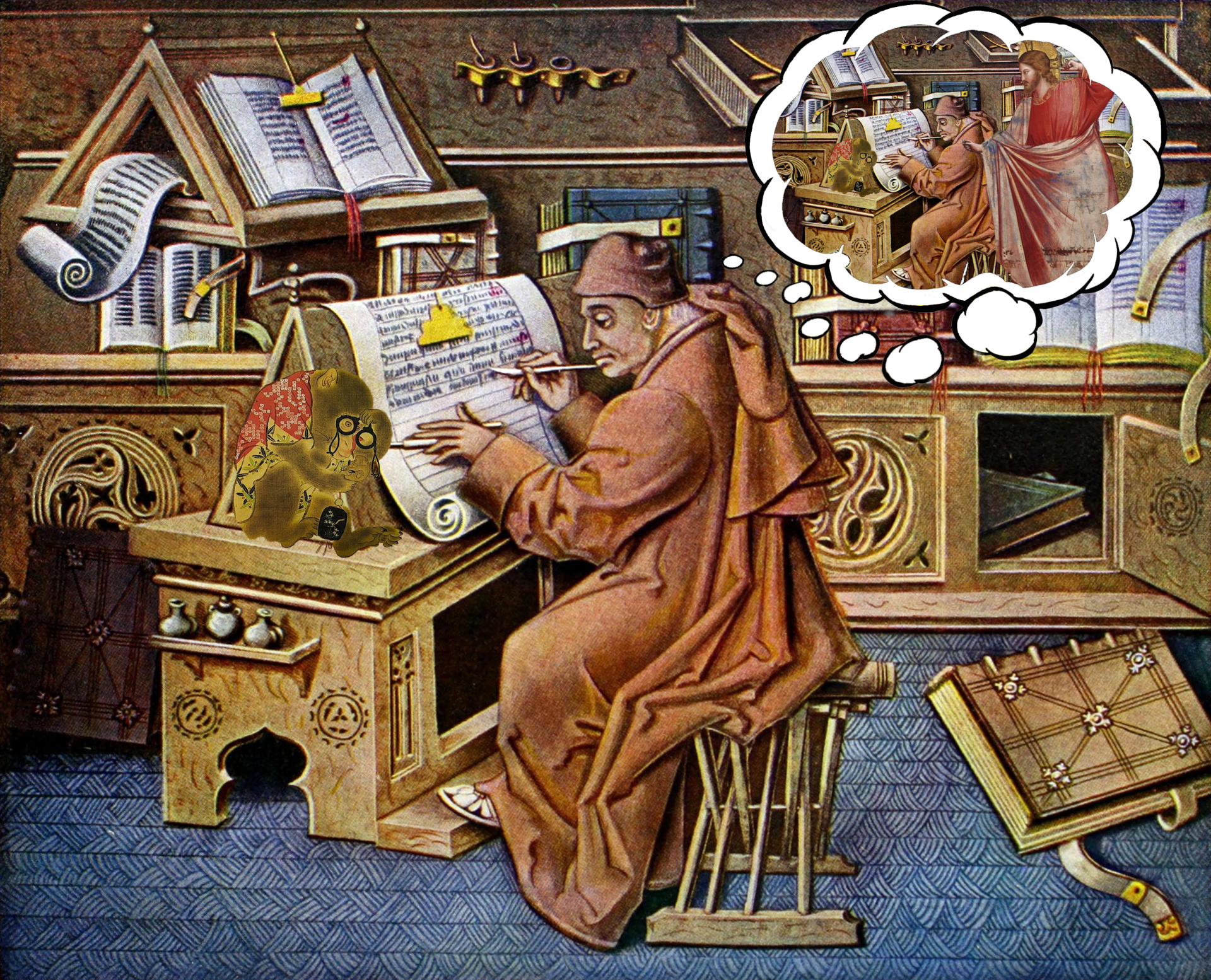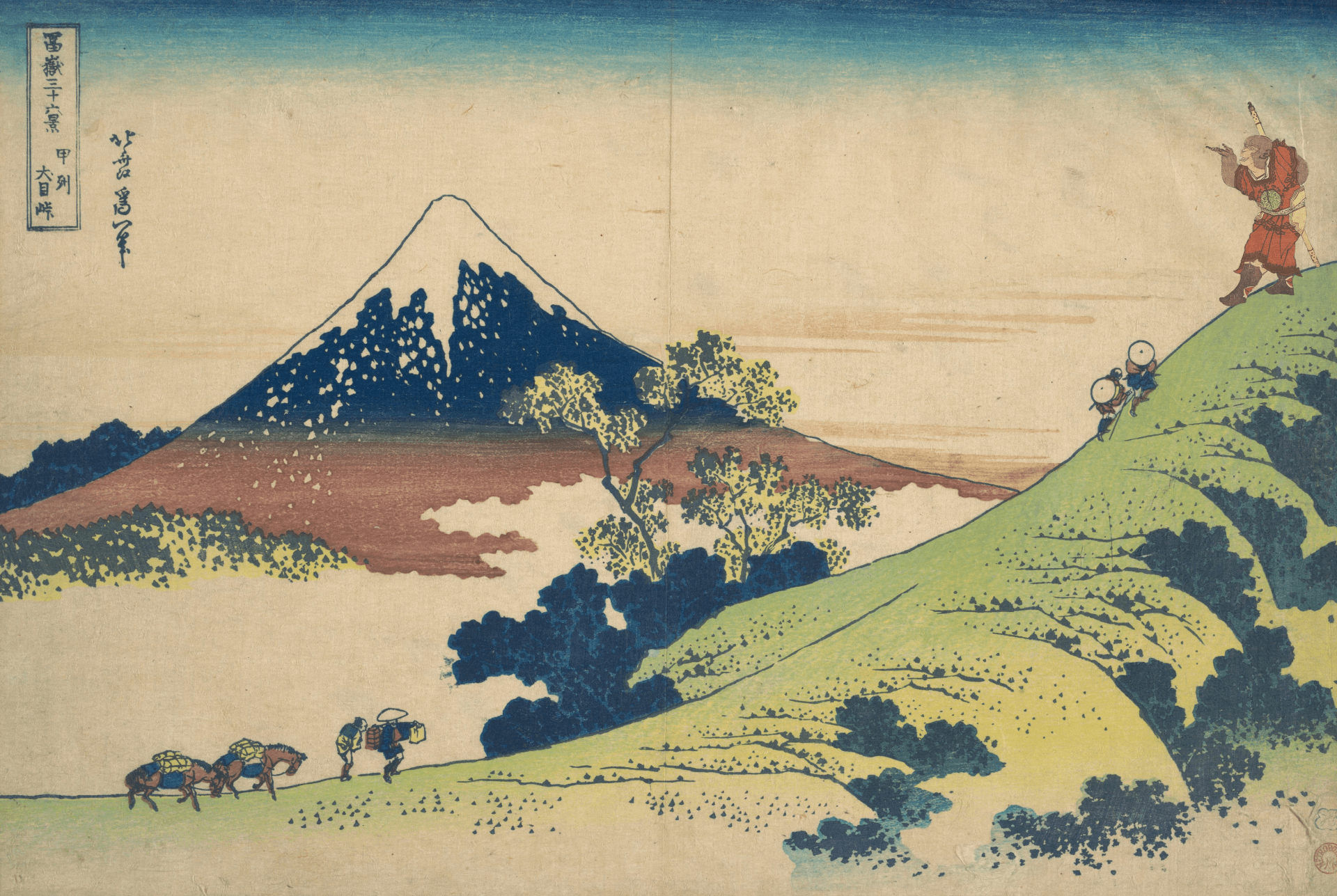
Baking with a B: Lotfi I
(Gurudeva)
I wondered how to begin this.
It felt right that I should first place brush to paper with those lines, the first lines of the Shaah-Naameh, itself what you might call the shaah-kaar, king-work, of one of the greatest poets of a land of poets -- a king of kings, you might say, with fully spiritual, if by no means blasphemous, implications intended.
What does that line say?
Please forgive me -- my Farsi isn't that good, and when it comes to ancient Persian poetry of the finest kind -- naturally, my translation will fall short.
So, I'll take the aged wine and place it in a new bottle -- preserving the flavor, if not the form.
Take a sip so I can take you deeper into this drunkenness.
In the name of the God of Soul and Mind -- for what can we invoke higher than this?
Yes.
Already, I've told you everything; but well do I know that few caravans ever stop at the door of this tavern anymore, where aforetime its spirits spoke for themselves, needing no other sign to proclaim them.
Now, I must cry my wares like a fishwife in the street.
I began as I began, because to try to speak about what I want to speak about today -- I need God's help, because I don't have the words.
I will write, or rather paint a portrait, of a man -- a scion of that ancient line, just as high and noble as the king whose title I evoked, or any of his kin; and though he sang their poetry and was himself a poet, he might better be called a bard.
Or, better yet, a lover -- an aashegh.
Is it presumptuous to link him to myself?
A name, at least, we share.
And now, this line that came to my mind several times this morning makes sense to me:
These words were written by Thomas, the Twin of Jesus.
Please don't argue with me if those aren't the words; as I said here:
I just say things that sound nice to make a point. As someone said, maybe me -- I never let facts get in the way of truth.
I believe this was the sub-heading to the Gnostic Gospels of Jesus Christ -- the oral tradition, the essential teachings, passed on from Master to disciple.
And, the point?
That, having imbibed the essence of what Jesus wanted to share, Thomas was no longer Thomas, but the twin of Christ.
Or, as Jesus is said to have said to Thomas, chiding him for calling him Master:
I am not thy Master, because thou hast drunk, thou has become drunk from the bubbling spring which I have measured out.
What I'm saying is, I've drunk from the bubbling spring that Mohammad Reza Lotfi has measured out -- itself, fed by ancient courses, long in the flowing, themselves sprung from an inexhaustible well in an immemorial homeland, to which I am bound only by blood and the energetic impressions it carries as echoes in its coursing through my veins.
Yes; for such a man, drunk on drink of such provenance, only my best, the intoxicated echo of lips loosed by the wine of sincerity, will suffice.
I'll come back to earth for a moment, though, before perhaps taking another poetic flight.
Here, and many places besides on this website, I talked about Mastery.
I also mentioned that I intended to paint a few portraits of Masters of Persian improvisational dastgaah music.
I also mentioned that Mohammad Reza Lotfi, I might even need to do a "study" of, painting not one portrait, but many -- so much do I have to say about him, or so much depth and meaning does his image afford to the creative imagination that wishes to render it in art.
I also said, saying that, that I knew nothing I said would paint a true picture; for this kind of knowing, the only way is to go into it.
What I'm saying is -- I hope that what I write for you, and how I write it, inspires you to actually listen to this music; it may just be the fire that sets your field of reeds alight, setting in turn the white crane of your soul to flight.
I'm not sure whether I will, in fact, paint many portraits of Lotfi, but this is a start.
And, please understand -- I'm not writing as an expert, an analyst. God forbid. Take that talk somewhere else -- we don't do that in this house.
I write as one who's drunk from the bubbling spring, twin to all those who did the same.
And, really -- how could I analyze this music, or this musician? Like I said, I barely understand the language, let alone its highest expression in the divine poetry he, and his craft, sets to song.
That was my gift -- and it was a gift, as I allude to here -- and my door into a room that long had been locked to me.
Because, the thing is, though poets take a different tack and transcend this inherent-seeming limitation of language, language tends to be rational.
What is rational, is not felt.
Elsewhere, I said rationality is an expression of divinity. It is.
But, in a more immediate sense, true experience of divinity is not mental or rational -- it is felt.
Feeling is a language we all share in common.
In that same essay, if you want to call it that, I mentioned walking in the woods and tripping over a pile of gold, of which I brought back nothing but the impression of its weight in my hand.
As is often the case with such gold nuggets, as with keys, sometimes when you think you've lost them, you put on a different coat and find -- hey, there they are, right there in my pocket!
What I'm saying is, I remembered something just now.
That day in the woods, I was thinking about Spring Forest Qigong, how its founder, Master Chunyi Lin, teaches about the "Seven Dimensions of Healing."
I won't go into that here -- not in depth.
The point is, as a healer, as you move from the lowest, most material dimension, to the highest, most spiritual dimension, your healing becomes more and more powerful.
You can call the spiritual and material dimensions "heaven" and "earth."
The pivot-point between them, so to speak, is the dimension of the heart.
The divine enters the world through the heart; and we in turn reach out to it from the mire of our worldly woes through the heart.
This dimension, if you want to call it that, this dimension of the heart, has a special quality of being both material and spiritual.
Of course, if you're clever, you'll say all dimensions are both material and spiritual. Maybe.
But we don't do clever talk in this house, either, unless it's for a joke, so either pack your bags or else open your lips to take a sip of the wine of sincerity before you open them again.
But what I'm saying is -- that's why the Sufis, and that's why this music of Mohammad Reza Lotfi and other Masters of improvisational Persian dastgaah music are so special -- the keepers, as I said elsewhere, of one of the highest and finest spiritual expressions and methods humanity has ever created.
They understand that the heart is the doorway to the kingdom of heaven, and so -- leaving aside all the theory and technique, its mastery and its many subtleties and intricacies, which are both crucial and interesting in themselves -- all their effort, including the mastery of the many subtleties and intricacies of theory and technique, is to bring the most feeling, the most heartbreak, the most longing, the most prayerful cries of the benighted soul to what they sing and play.
If you haven't stripped your soul of all posing, posturing, and insincerity, you're not making this music -- however good your technique is.
It's not about perfection, though -- I have to say -- the best Masters' technique is perfect, while at the same time has its rough edges.
Is that a contradiction?
No; it is about sounding a tone in the heart that will evoke a response from on high. There is a technique for that, and it can be perfected, and though it isn't about artifice, one can bring art to it.
My God -- I could go on and on about how Mohammad Reza Lotfi does this!
Maybe I will here; maybe I won't.
Before I do, or don't, I want to come back the the dimension of the heart.
One little nugget of gold that made it back, in the bottom of a forgotten pocket.
I likened, in my wandering mind, what I'm talking to you about now to the baking of bread.
Gurdjieff, and his student-commentators, talked about Influences Types A, B, and C.
"A influences are created by life. They arise within the life of mechanical humanity from the interests of business, money-making, science, sport, politics, from the interests of conquest, intrigue, crime, power, from the interests of wealth, position, display and possessions, and from all the necessary interests of food, clothing, housing, law, order, and so on."
You might say, these are the material of the Seven Dimensions.
And, further, they serve only to develop, as Gurdjieff called it, Personality, or worse, False Personality -- that which accrues to your Essence, but which is not truly yours, and which, as I said above, must be stripped from the soul for you to move into higher dimensions.
Whereas C Influences, what you might call those which emanate from the higher, spiritual dimensions, "cannot exist in mechanical life, but become changed and altered in such a way that they only approximate to their original form."
That is, the spiritual is one realm, the material is another, and never the twain shall meet.
Oil and water, you might say.
That's a bit simplified, but -- it's a rail to help you move up the stairs we're climbing today.
And B Influences?
"These do not arise from life. Their source of origin is different. They have nothing to do with business, money-making, politics, sport, and so on. They come from outside the circle of mechanical life."
These Type B influences, Nicoll goes on, are to be found "[i]n all ages and at all times... in a certain class of literature, in certain religious ideas, in many ancient writings ..."
And, I would add, as Gurdjieff alludes to himself, elsewhere, these Type B influences also exist in music.
I myself would say -- specifically, in the improvisational dastgaah music of Persian musical Masters, of whom the highest flowering in living memory, the king of kings, would be Mohammad Reza Lotfi.
What I'm saying is -- Influences Type B dwell in the dimension of the heart.
They are, you might say, a technology.
That is a very dirty, a filthy, word to apply to such a class of sacred influences, but it does tell you something -- mainly, that they are consciously created by knowing people to perform a specific action towards a specific end.
But, unlike the technology you know and seem to love so well, this technology is not destructive, but life-giving; it is not crassly material, but essentially spiritual. It carries you upward, rather than dragging you downward.
Back to that nugget that made it home in my well-worn, if by no means nassty, pocketses.
I said I thought about the baking of bread.
Do you know what I thought of?
These Influences Type B, this improvised dastgaah music of the Persian Masters, especially Lotfi, these artistic endeavors of the dimension of the heart are like bread, into which a Certain Something Sweet has been baked.
A Lotfi has tasted that thing whose fragrance is ineffable. You haven't.
Though he wants so badly for you to taste it, too, he can't give it to you, he can't make you taste it, and -- if we're being honest about you, -- he can't even seem to make you want to taste it.
What a tragedy. What an absurdity!
And, in part, to that end -- that's why the 13- and 14-hour days of playing his taar or setaar, trying to bring every last drop of his distilled suffering, all the feelings he ever felt in the silence of his lonely soul, to the music he makes for you.
Yes.
You're in World A, and he's in World C, and, it seems, never the twain shall meet.
Oil and water.
Of course, now would be a time for the clever one who piped up earlier to say, "What about emulsifiers? With an emulsifier, you can mix oil and water."
Well, stand up, young man, and pat yourself on the back, but not too long; you're right, but I wouldn't quite call that poetry yet, so take another nip from me naggin, me hearty, and take your seat again.
Yeah, by means of an emulsifier, you might mix oil and water.
I wasn't thinking in those terms.
Emulsifiers imply cleaning, whereas baking implies eating.
And what I'm saying is, a Lotfi isn't speaking to people who are dirty, but to people who are hungry.
He wants so badly for you to taste that thing he's tasted, whose fragrance is ineffable... but you can't digest it yet.
So what does he do?
He takes what is of the earth -- grains, seeds -- and grinds them fine to softness. He binds them with water, which you might call the blood of the earth, the same from which the grains sprang, and bakes them with fire, the passion of his feeling.
And into it, when nobody was looking, he put a little bit of that Certain Something Sweet, which no one is quite sure where he got.
And -- in his performance, he's giving you that bread.
You are in the world and of the world -- so, what can he say to you?
But, you understand food, and you know you are hungry. And, he knows you are hungry.
In that space, so welcoming, so warm, you eat some of that bread, and it fills your belly, which you understand, and which calms your mind.
And as your mind calms, now the fragrance of that Certain Something Sweet, which perhaps lingers on your lips, or on your tongue, or on your clothes, reaches your nose.
Whoa -- what was that?
Yes, indeed -- what was that?
Having smelled that, you won't sleep well again, until you know its source.
You won't sleep well again, in fact, until you yourself have tasted of that Nameless Thing whose fragrance is that Certain Something Sweet keeping you tossing and turning of a night, or many nights.
You won't sleep well again, until thou hast drunk, thou hast become drunk from the bubbling spring which Lotfi hath measured out.
You won't sleep well again, until you are his twin.
So saith the twin of Lotfi, Lotfi.
I said this would be a portrait.
Is it?
I seem only to have made the frame.
Or, I seem rather to have set the stage, while the curtain is yet to be drawn open and the Master is yet to step forward.
Gurdjieff said, we put the house in order so the Master can return to inhabit it.

13 April 2022
Those who only dip their toes will never touch the depths.
Champion Toe-Dipper
Signs and wonders!
Well, wouldja you look at that -- you actually emailed me. I'm glad you figured my website out.
If you would, give me a little time to reply, ok?
I'll do my best to reply quickly. If you don't hear back within a couple days, you may want to write again.
Take care,
Jian
Oh, boy.
Gremlin in the machine. I don't think your message went through.
Why not take a constitutional and try again a bit after, huh?
Jian





